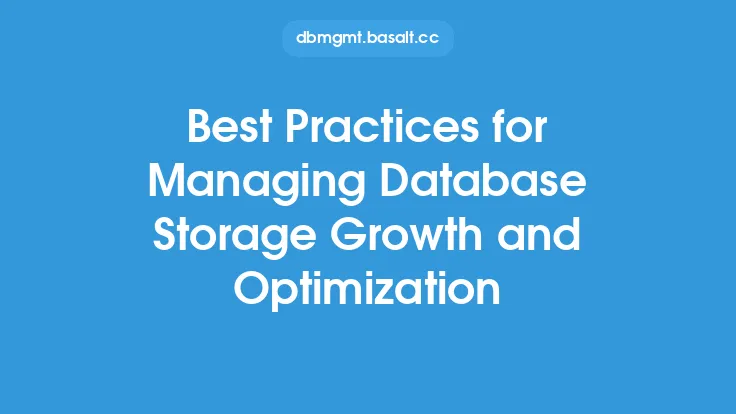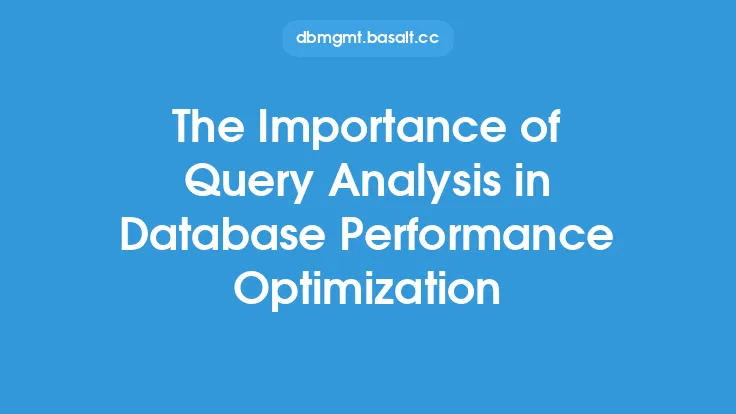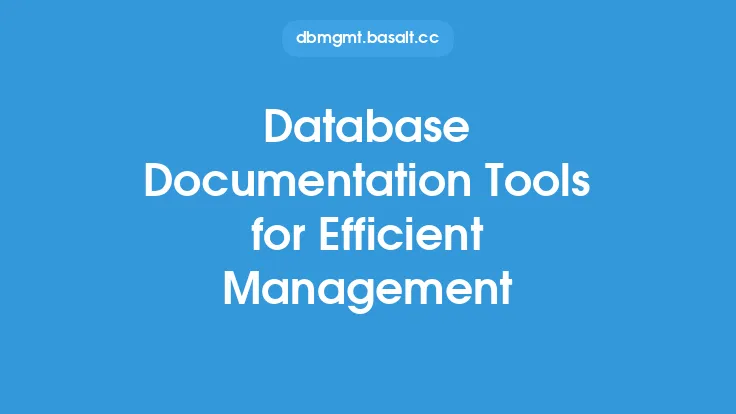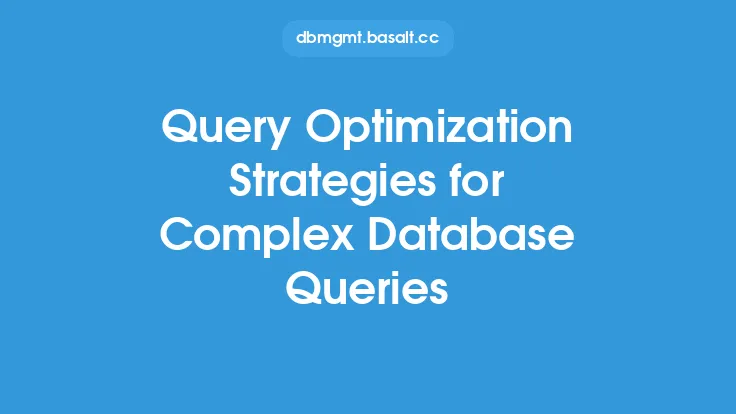Database management is a critical aspect of ensuring the overall performance and efficiency of any database system. One key component of database management is query optimization, which involves analyzing and improving the performance of database queries to reduce execution time and improve overall system efficiency. Query optimization tools play a crucial role in this process, providing database administrators with the necessary insights and capabilities to identify and optimize poorly performing queries. In this article, we will explore the importance of query optimization tools in database management and discuss how they can be leveraged to improve database performance.
Introduction to Query Optimization Tools
Query optimization tools are software applications designed to analyze and optimize database queries. These tools use various techniques, such as query analysis, indexing, and caching, to identify performance bottlenecks and provide recommendations for improvement. Query optimization tools can be categorized into two main types: manual and automated. Manual tools require database administrators to manually analyze and optimize queries, while automated tools use artificial intelligence and machine learning algorithms to identify and optimize poorly performing queries. Some popular query optimization tools include query analyzers, index tuning wizards, and cache management tools.
How Query Optimization Tools Work
Query optimization tools work by analyzing the database query execution plan, which is a detailed outline of the steps the database takes to execute a query. The tool analyzes the query execution plan to identify performance bottlenecks, such as slow-running queries, inefficient indexing, and inadequate caching. The tool then provides recommendations for improvement, such as rewriting the query, creating new indexes, or adjusting cache settings. Query optimization tools can also provide real-time monitoring and alerting capabilities, allowing database administrators to quickly identify and respond to performance issues.
Benefits of Query Optimization Tools
Query optimization tools offer several benefits, including improved query performance, reduced execution time, and increased system efficiency. By optimizing poorly performing queries, database administrators can improve the overall performance of the database system, reducing the time it takes to execute queries and improving the user experience. Query optimization tools can also help reduce the risk of database downtime and data loss, by identifying and addressing potential performance issues before they become critical. Additionally, query optimization tools can help database administrators to identify and eliminate redundant or unnecessary queries, reducing the overall workload of the database system.
Types of Query Optimization Tools
There are several types of query optimization tools available, each with its own strengths and weaknesses. Some popular types of query optimization tools include:
- Query analyzers: These tools analyze the query execution plan to identify performance bottlenecks and provide recommendations for improvement.
- Index tuning wizards: These tools analyze the database indexing strategy and provide recommendations for improvement.
- Cache management tools: These tools analyze the database cache settings and provide recommendations for improvement.
- Automated query optimization tools: These tools use artificial intelligence and machine learning algorithms to identify and optimize poorly performing queries.
- Manual query optimization tools: These tools require database administrators to manually analyze and optimize queries.
Best Practices for Using Query Optimization Tools
To get the most out of query optimization tools, database administrators should follow best practices, such as:
- Regularly monitoring query performance and adjusting optimization settings as needed.
- Using a combination of manual and automated query optimization tools to ensure comprehensive coverage.
- Testing and validating query optimization recommendations before implementing them in production.
- Continuously monitoring and analyzing query performance to identify areas for improvement.
- Using query optimization tools in conjunction with other database management tools, such as performance monitoring and backup and recovery tools.
Common Challenges and Limitations
While query optimization tools can be highly effective in improving database performance, there are several common challenges and limitations to consider. Some of these challenges and limitations include:
- Complexity: Query optimization tools can be complex and require significant expertise to use effectively.
- Cost: Query optimization tools can be expensive, especially for large-scale database systems.
- Limited coverage: Some query optimization tools may not provide comprehensive coverage of all database queries, leaving some performance issues undetected.
- False positives: Some query optimization tools may generate false positives, recommending optimizations that are not actually necessary.
- Over-optimization: Some query optimization tools may over-optimize queries, leading to decreased performance in other areas of the database system.
Future of Query Optimization Tools
The future of query optimization tools is likely to be shaped by advances in artificial intelligence and machine learning. As these technologies continue to evolve, we can expect to see more sophisticated and automated query optimization tools that can identify and optimize poorly performing queries with greater accuracy and efficiency. Additionally, the increasing adoption of cloud-based database systems is likely to drive the development of cloud-native query optimization tools that can take advantage of the scalability and flexibility of cloud-based infrastructure. As database systems continue to grow in complexity and size, the importance of query optimization tools will only continue to increase, making them a critical component of any database management strategy.
Conclusion
In conclusion, query optimization tools are a critical component of any database management strategy. By providing database administrators with the necessary insights and capabilities to identify and optimize poorly performing queries, query optimization tools can help improve database performance, reduce execution time, and increase system efficiency. While there are several challenges and limitations to consider, the benefits of query optimization tools make them a valuable investment for any organization that relies on database systems to drive their business. As the database management landscape continues to evolve, we can expect to see more sophisticated and automated query optimization tools that can help database administrators to optimize their database systems with greater accuracy and efficiency.





